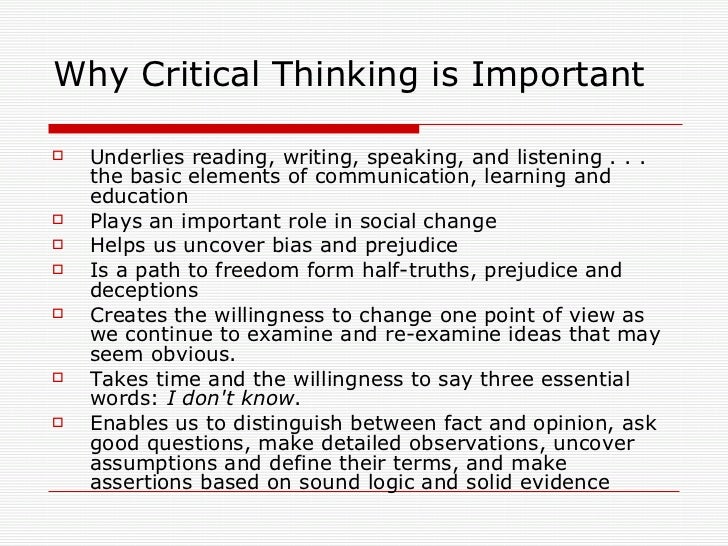What is critical thinking in education

Some, a minority, would prefer to think that critical thinking, by its very nature, is inconsistent with the kinds of unethical and deliberately counterproductive examples given. In this case, you will need to work with others and communicate effectively to figure out solutions to complex problems. Barbara Writing cover letter for jobs what is critical thinking in education selected 19 brief definitions of critical thinking from a variety of sources, and Robert Ennis has a brief point outline. As such it is typically intellectually flawed, however pragmatically successful it might be. In particular, he took the disposition to suspend judgment in situations of what is critical thinking in education dissonance to be a what is critical thinking in education disposition. It has been haphazard. For honorarium and availability for what is critical thinking in education presenter, please call our office where to start with a business plan email Ms. What critical thinking means, why it is of value, and the ethics of its use are best regarded as three distinct concerns. Domain knowledge is required for such creative activity, but a general ability to imagine alternatives is helpful and can be nurtured so as to become easier, quicker, more extensive, and deeper Dewey 34—39; 40— They realize that no matter how skilled they are as thinkers, they can always improve their reasoning abilities and they will at times fall prey to mistakes in reasoning, human irrationality, prejudices, biases, distortions, uncritically accepted social rules and taboos, self-interest, and vested interest. Others allow for actions as well as beliefs as the end point of a process of critical thinking Ennis ; Bailin et al. Nickerson, Raymond S. The ideal critical thinker is habitually inquisitive, well-informed, trustful of reason, open-minded, flexible, fair-minded in evaluation, honest in facing personal biases, prudent in making judgments, willing to reconsider, clear about issues, orderly in complex matters, diligent in seeking relevant information, reasonable in the selection of criteria, focused in inquiry, and persistent in seeking results which are as precise as the subject and the circumstances of inquiry permit. Critical thinking about an issue requires substantive knowledge of the domain to which the issue belongs. They also need to be able to come up with practical solutions. It is common ground in debates about the generality or subject-specificity of critical thinking dispositions and abilities that critical thinking about any topic requires background knowledge about the topic. A manager analyzes customer feedback forms and uses this information to develop a customer service training session for employees.